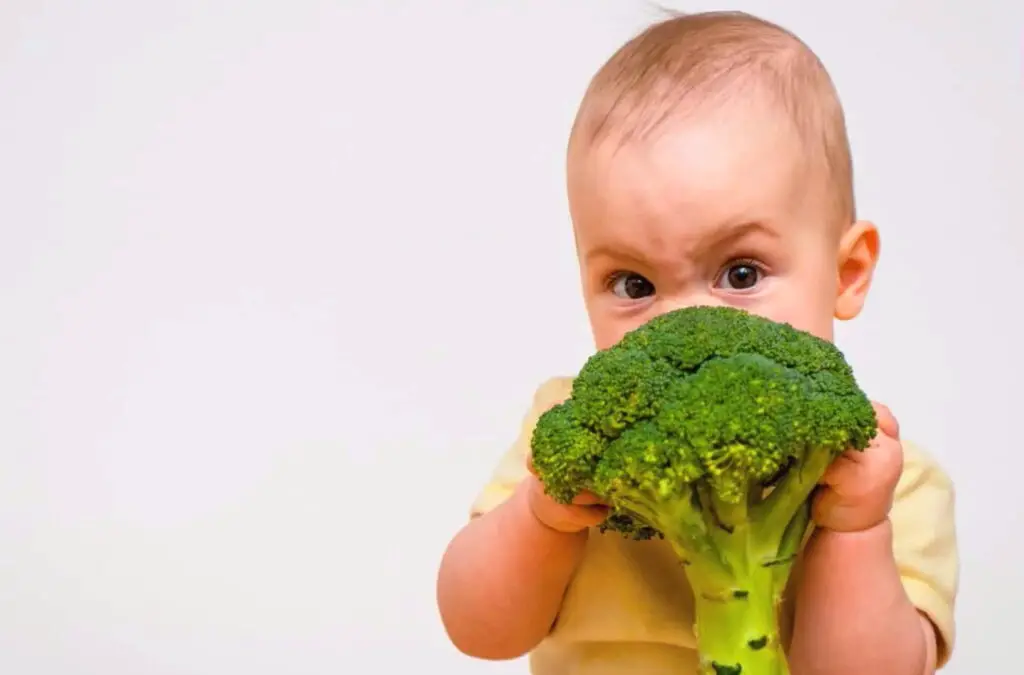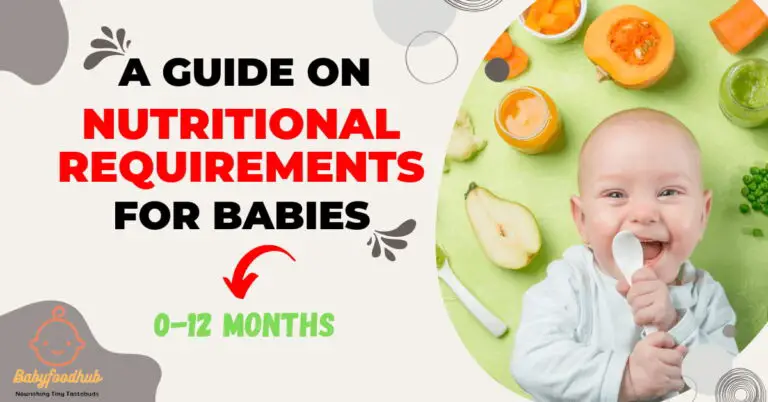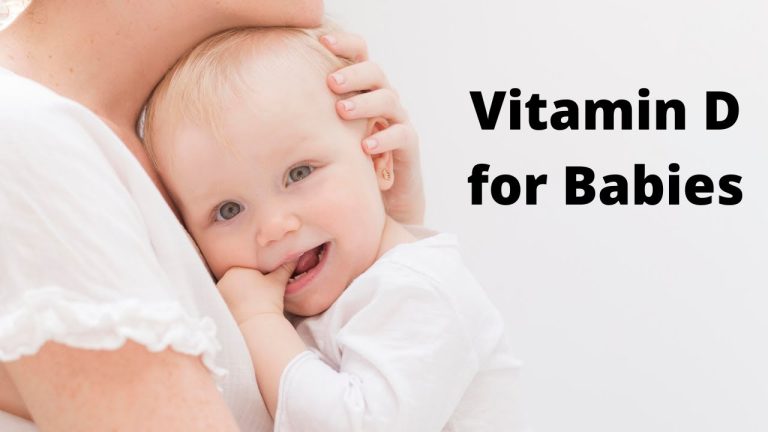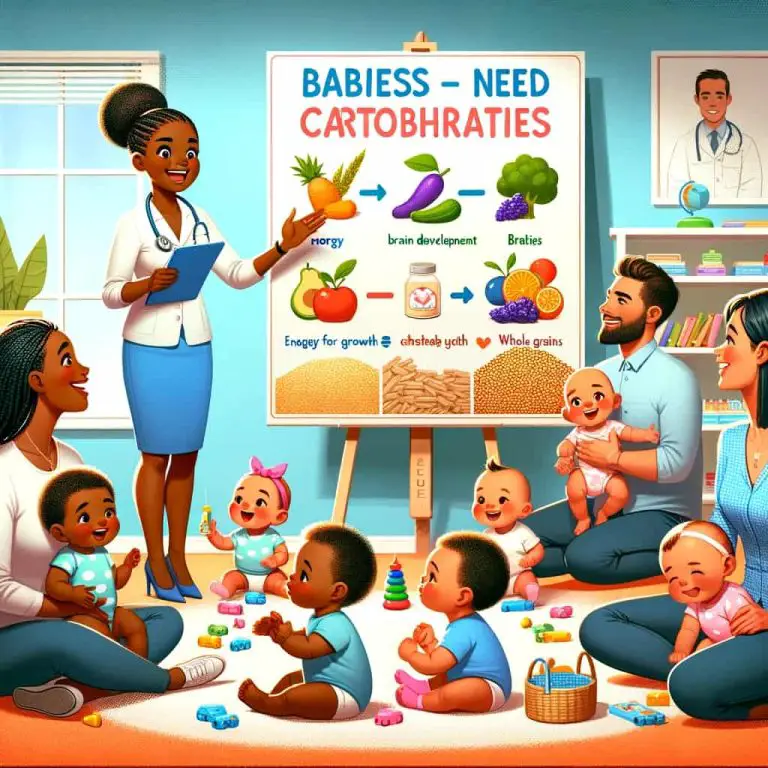Bad Effects Of Nutritional Yeast on Baby | Parents Must Know
The high fiber content of nutritional yeast can cause digestive upset in babies, such as stomach discomfort, cramps, or diarrhea if introduced too quickly or in large amounts. Thus, it’s important to gradually introduce nutritional yeast and ensure a balanced and varied diet to avoid these potential side effects.
Nutritional yeast can be a healthy addition to a baby’s diet, particularly in vegan and vegetarian families, as it provides additional nutrients and flavors. However, it’s important to be aware of any potential sensitivities or allergies to yeast before introducing it to a baby’s diet.
Always consult with a pediatrician or healthcare professional before adding any new foods to a baby’s diet.
Risks Of Introducing Nutritional Yeast To Babies

Introducing nutritional yeast to babies may have some negative effects. The high fiber content of nutritional yeast can cause digestive upset such as cramps or diarrhea if introduced too quickly. It is important to gradually introduce nutritional yeast and consume plenty of fiber to avoid these unpleasant side effects.
Physical And Developmental Differences Between Adults And Babies
Babies have unique physical and developmental characteristics that differentiate them from adults. It is important to consider these differences when introducing nutritional yeast to their diet. Firstly, babies have delicate digestive systems that are still developing, making them more prone to gastrointestinal issues. Secondly, their immune systems are not as strong as those of adults, leaving them more susceptible to the potential negative effects of certain foods.
Potential Negative Effects Of Nutritional Yeast On Baby’s Health
While nutritional yeast is generally considered safe for adults, it is important to be cautious when introducing it to babies. Here are some potential negative effects that should be considered:
- Digestive upset: Nutritional yeast is high in fiber, which can cause digestive discomfort in babies, especially if they are not used to consuming high-fiber foods. Introducing too much fiber too quickly can lead to stomach cramps or diarrhea. Gradually introducing nutritional yeast and ensuring a balanced fiber intake can help prevent these issues.
- Allergic reactions: Although rare, some babies may be allergic to nutritional yeast. Symptoms of an allergic reaction can include skin rashes, hives, swelling, or difficulty breathing. It’s important to watch for any signs of allergies when introducing nutritional yeast and seek medical attention if any symptoms occur.
- Potential for nutrient imbalances: Nutritional yeast is often fortified with various nutrients, such as B vitamins, which can be beneficial for adults. However, it is important to note that babies have different nutritional needs and nutrient imbalances can occur if too much fortified nutritional yeast is consumed. It’s best to consult with a pediatrician or a registered dietitian before introducing nutritional yeast to ensure it doesn’t interfere with the baby’s overall nutrient intake.
In conclusion, while nutritional yeast can offer health benefits for adults, it is crucial to consider the potential risks and negative effects when introducing it to babies. Their unique physical and developmental characteristics, along with the possibility of digestive upset, allergic reactions, and nutrient imbalances, should be taken into account. It’s always recommended to seek professional advice and monitor any changes in the baby’s health when introducing new foods into their diet.
Allergic Reactions To Nutritional Yeast In Babies
Introduction paragraph: Nutritional yeast is a popular ingredient due to its cheesy flavor and nutritional benefits. However, it is important to be aware of potential allergic reactions, especially when introducing it to babies. In this section, we will explore common allergic reactions in infants and the symptoms that may indicate an allergic response to nutritional yeast.
Common Allergic Reactions In Infants
Allergic reactions in infants can vary, but there are some common types of reactions that can occur when introducing nutritional yeast. These reactions can range from mild to severe and may include:
- Hives or skin rash
- Swelling of the face, lips, or tongue
- Difficulty breathing
- Nasal congestion or runny nose
- Coughing or wheezing
- Vomiting or diarrhea
- Abdominal pain or cramps
- Irritability or fussiness
- Sleep disturbances
Symptoms Of Allergic Reactions To Nutritional Yeast
When introducing nutritional yeast to your baby, it is essential to keep an eye out for any signs of allergic reactions. The symptoms of an allergic response to nutritional yeast may include:
- Rash or hives on the skin
- Swelling of the face, lips, or tongue
- Difficulty breathing or wheezing
- Nasal congestion or runny nose
- Coughing or sneezing
- Vomiting or diarrhea
- Abdominal pain or discomfort
- Excessive fussiness or irritability
- Sleep disturbances or difficulty sleeping
If you notice any of these symptoms in your baby after introducing nutritional yeast, it is important to seek medical advice. Allergic reactions can be serious and may require immediate medical attention.
Remember, each baby is unique, and some infants may have a higher risk of developing an allergic reaction to nutritional yeast. If you have any concerns or questions, it is always best to consult with your pediatrician or a healthcare professional.
Digestive Issues Caused By Nutritional Yeast In Babies
Introducing nutritional yeast to babies can potentially cause digestive issues such as stomach discomfort, cramps, or diarrhea due to its high fiber content. It is important to gradually introduce this ingredient and consume plenty of fiber to avoid these negative effects.
Impact Of Nutritional Yeast On Baby’s Digestive System
Nutritional yeast, often used as a flavor enhancer and source of essential nutrients, can cause digestive issues in babies. While it is generally safe for consumption, certain factors may lead to potential discomfort and digestive problems.
Potential Digestive Issues And Discomfort
The high fiber content in nutritional yeast can be a common cause of digestive upset, especially when it is introduced abruptly into an infant’s diet. Babies who are not accustomed to consuming high-fiber foods may experience symptoms such as stomach discomfort, cramps, or diarrhea. It is important to introduce nutritional yeast gradually and ensure an adequate intake of fiber to avoid these unpleasant side effects.
In some cases, babies with sensitive digestive systems may be more prone to experiencing discomfort after consuming nutritional yeast. If your baby exhibits any unusual symptoms or discomfort after introducing nutritional yeast, it is advisable to consult with a pediatrician for further guidance and evaluation.
To minimize digestive issues, it is essential to ensure a balanced and varied diet for your baby. Offering a wide range of nutrient-rich foods alongside nutritional yeast can help support their digestive health and overall well-being.
Nutritional Imbalances Caused By Nutritional Yeast In Babies
Nutritional yeast can cause nutritional imbalances in babies, leading to negative effects on their health. It is high in fiber and can cause digestive upset if consumed in large amounts, especially if the baby is not accustomed to a high-fiber diet.
Introducing nutritional yeast gradually and in moderation is important to avoid any potential side effects.
Nutrient Composition Of Nutritional Yeast And Its Effects On Baby’s Diet
Nutritional yeast is often praised for its nutritional benefits in adult diets. However, when it comes to babies, the nutrient composition of nutritional yeast can potentially lead to imbalances in their diet. This can have negative effects on their overall health and development.
Risk Of Nutrient Imbalances And Deficiencies
Including nutritional yeast in a baby’s diet may introduce imbalances in essential nutrients, which could potentially lead to deficiencies. While nutritional yeast is known to be a good source of B vitamins, zinc, and protein, it is low in iron and vitamin B12, both of which are crucial for a baby’s growth and development.
This iron deficiency can result in anemia, causing fatigue, weakness, and impaired cognitive development in babies. Vitamin B12 deficiency, on the other hand, can lead to neurological problems and hinder the baby’s brain development.
Furthermore, the use of nutritional yeast as a substitute for breastfeeding or infant formula can also be problematic. Breast milk and infant formula are carefully formulated to provide a baby with all the necessary nutrients they need for healthy growth. Substituting these with nutritional yeast can create an imbalance and potentially lead to malnutrition.
It is important to note that introducing nutritional yeast to a baby’s diet should be done under the guidance of a pediatrician or healthcare professional. They can evaluate the nutritional needs of the baby and recommend appropriate dietary adjustments to prevent any potential imbalances or deficiencies.
Impact On Gut Microbiome In Babies
The gut microbiome refers to the community of microorganisms that reside in the digestive system. It plays a crucial role in maintaining overall health, especially in infants. A healthy gut microbiome is essential for proper digestion, nutrient absorption, and immune function. Any disruptions to this delicate balance can have negative consequences on a baby’s health.
Importance Of A Healthy Gut Microbiome In Infants
A well-functioning gut microbiome is vital for the development of a baby’s immune system. It helps protect against harmful pathogens and promotes the growth of beneficial bacteria. Additionally, a healthy gut microbiome is necessary for the proper digestion and absorption of nutrients, such as vitamins and minerals, which are crucial for a baby’s growth and development.
Potential Disruptions To The Gut Microbiome Caused By Nutritional Yeast
Nutritional yeast, despite its many benefits for adults, may have potentially negative effects on the gut microbiome in babies. While more research is needed to fully understand the specific impact, certain properties of nutritional yeast can disrupt the delicate balance of the gut microbiome in infants.
One potential concern is the high fiber content of nutritional yeast. Although fiber is generally beneficial for gut health, introducing too much fiber too quickly can lead to digestive upset in babies. This can manifest as stomach discomfort, cramps, or diarrhea. It is important to introduce nutritional yeast gradually and ensure that the baby’s diet contains an adequate amount of fiber to prevent these unpleasant side effects.
Additionally, nutritional yeast may contain glutamate, which is a naturally occurring amino acid. While glutamate is generally safe, excessive consumption can have negative effects. MSG, monosodium glutamate, is a common food additive known for its potential harmful effects. Although the levels of glutamate in nutritional yeast are minimal, it is important to be mindful of the overall consumption of glutamate-rich products in a baby’s diet.
In conclusion, while nutritional yeast can be a valuable addition to an adult’s diet, its potential negative effects on the gut microbiome in babies should not be overlooked. It is essential to introduce nutritional yeast cautiously and monitor any digestive changes in the baby. As always, consulting with a healthcare professional is recommended before making any significant dietary changes for infants.
Frequently Asked Questions Of Negative Effects Of Nutritional Yeast On Baby
Is Nutritional Yeast Safe For Babies?
Nutritional yeast is generally safe for babies, but it should be introduced gradually. Consuming too much fiber too quickly can cause digestive upset like cramps or diarrhea. Start with small amounts and ensure a fiber-rich diet to avoid any unpleasant side effects.
Is There Any Downside To Nutritional Yeast?
Nutritional yeast may cause digestive upset if consumed in large amounts due to its high fiber content. Introduce it gradually and consume enough fiber to avoid discomforts like cramps or diarrhea.
Is Nutritional Yeast Msg?
No, nutritional yeast is not MSG. While both ingredients contain glutamate, nutritional yeast contains a minimal amount of naturally occurring glutamic acid. MSG, on the other hand, is a harmful condensation of glutamic acid and sodium. Nutritional yeast is safe to consume and does not have negative effects like MSG.
Can Nutritional Yeast Cause Infections?
No, nutritional yeast does not cause infections. It may help prevent them by aiding in the absorption of minerals and eliminating mycotoxins in the body.
Is Nutritional Yeast Safe For Babies?
Yes, nutritional yeast is safe for babies. However, introduce it gradually and consume plenty of fiber to avoid digestive discomfort.
Conclusion
Overall, it is important to exercise caution when introducing nutritional yeast to your baby’s diet. While there are potential benefits, such as an increase in mineral absorption, large amounts can lead to digestive discomfort or facial flushing. It is best to introduce nutritional yeast gradually and ensure your baby’s diet includes a variety of foods to avoid any negative effects.
Always consult with your pediatrician before making any significant changes to your baby’s diet.







